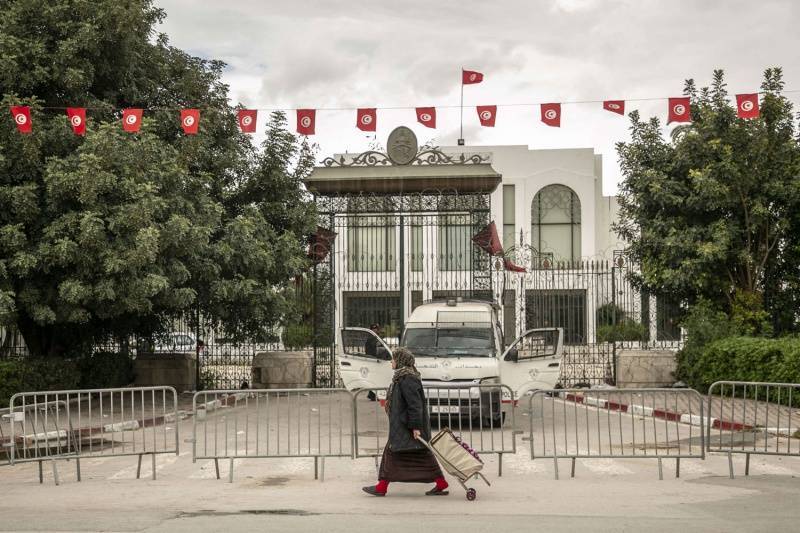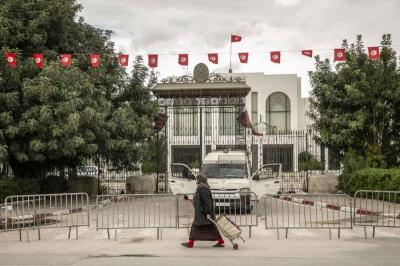The newly elected Tunisian parliament, which was elected in December and January with an extremely low turnout of only 11%, opened its first session today, Monday. The main opposition coalition stated that it would not recognize the parliament's legitimacy, describing it as "the fruit of a coup constitution."
Local and international journalists were not allowed to attend the parliament's inaugural session, marking a first since the 2011 revolution. Organizers stated that only official television, radio, and the official news agency were permitted to cover the event.
President Kais Saied definitively dissolved the previous elected parliament last year after suspending its activities in July 2021, moving to govern by decree in a step that opposition parties described as a coup. However, Saied claimed that his actions were legal and necessary to save Tunisia from years of corruption by a political elite serving only their own interests.
The new parliament, operating under a constitution drafted by Saied himself last year and approved in a referendum with a turnout of about 30%, will have limited powers compared to the parliament it replaced.
Salah Mabrouki, who presided over the inaugural session, highlighted the historic responsibility that the parliament bears. He said, "We are experiencing a pivotal moment in the country’s history, which motivates us to work... away from any conflicts related to narrow interests."
He added, "It is our duty as representatives of the people to work in collaboration with the components of the executive authority for the unity of the state."
Most parties boycotted the elections, and candidates were listed individually without party affiliation. Most members of the new parliament are independent politicians. The National Salvation Front, a major opposition coalition that includes the Islamist Ennahda Movement and activists including Citizens Against the Coup, stated in a statement that it would not recognize a parliament resulting from a coup and elections boycotted by the majority.




